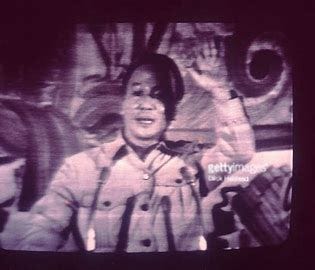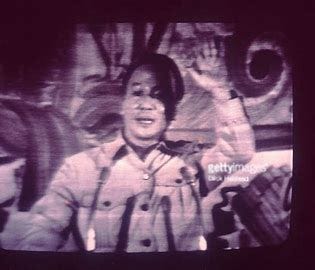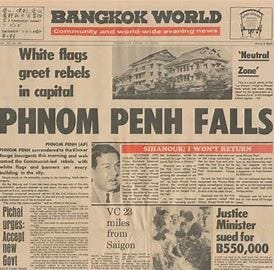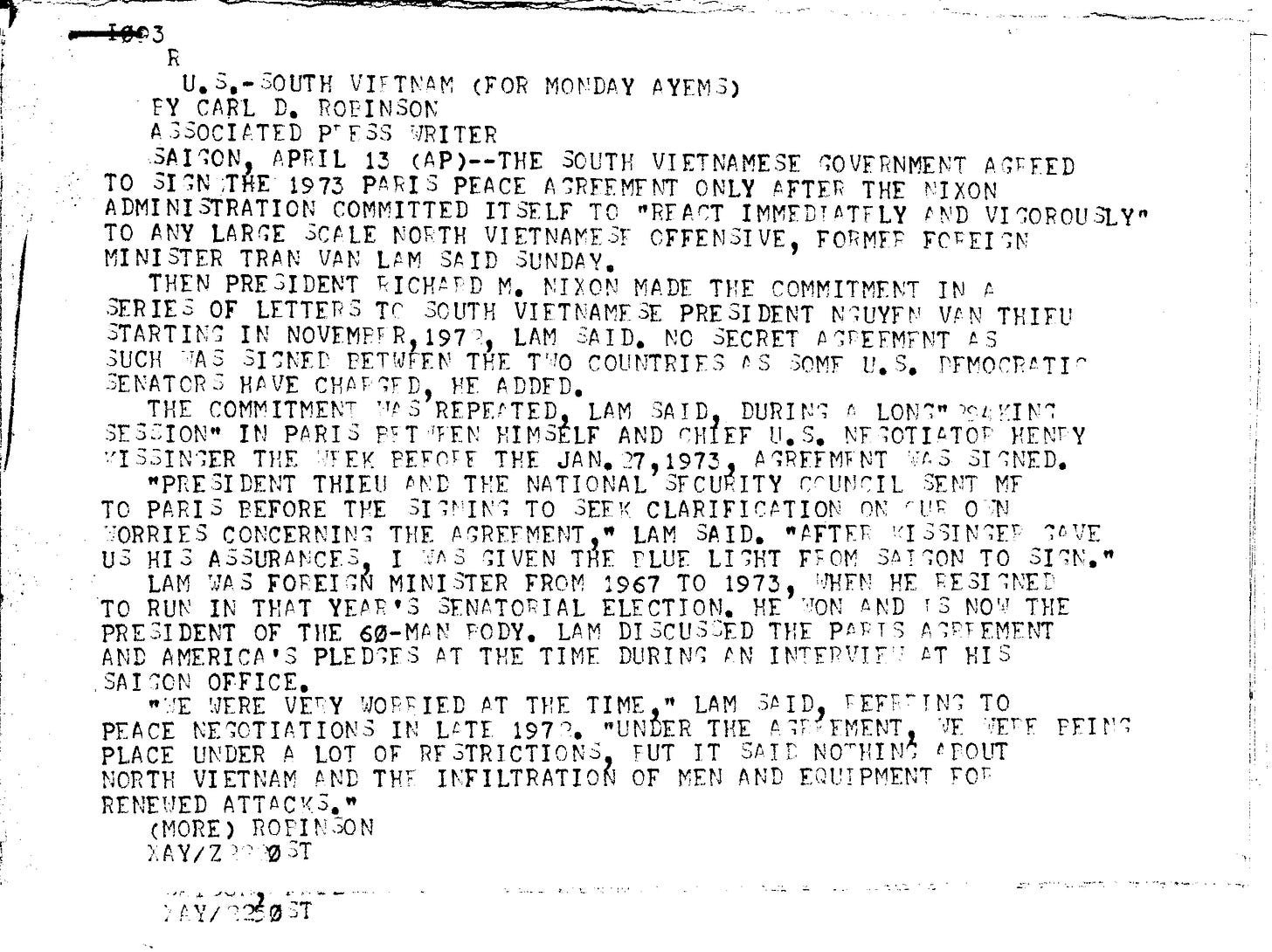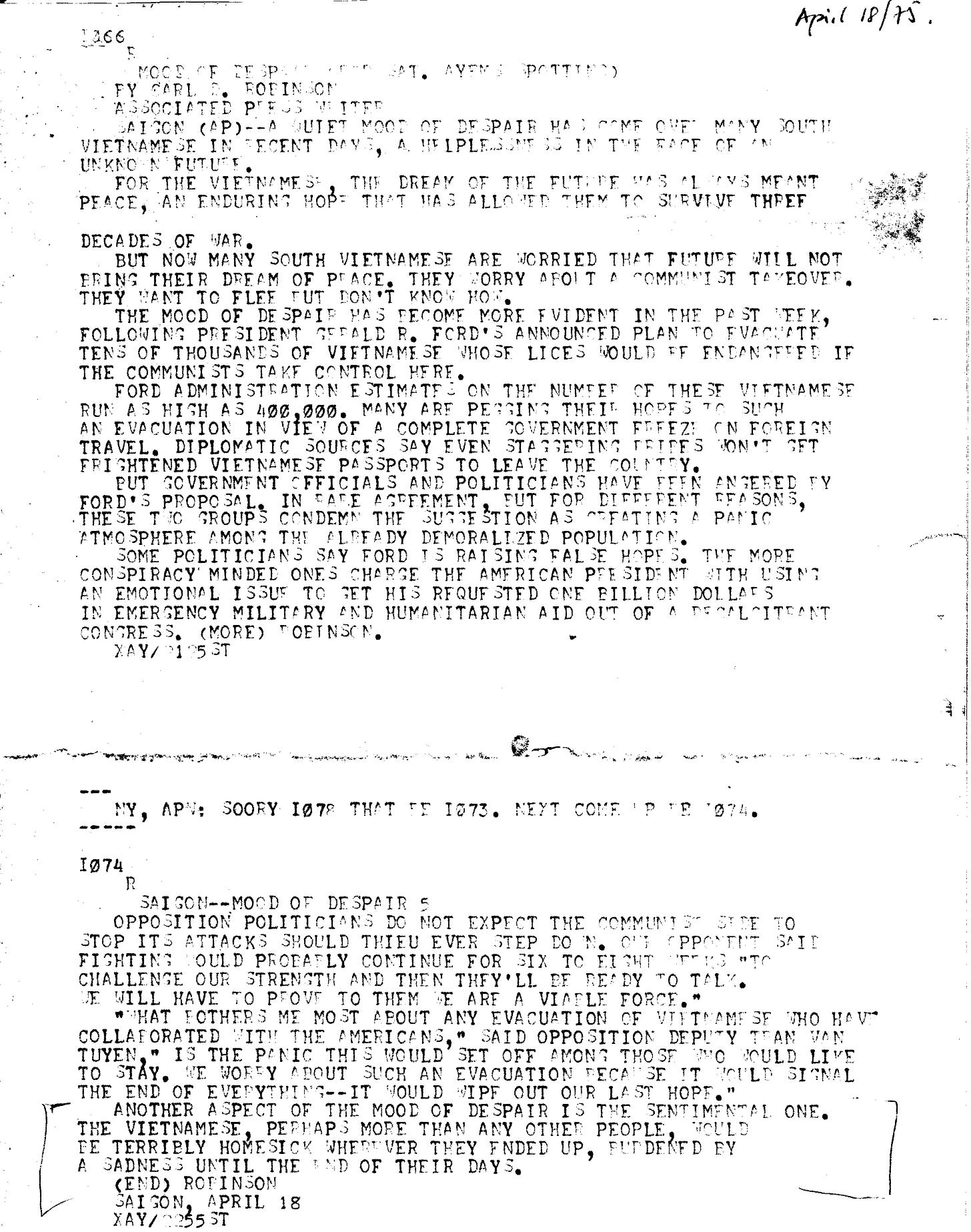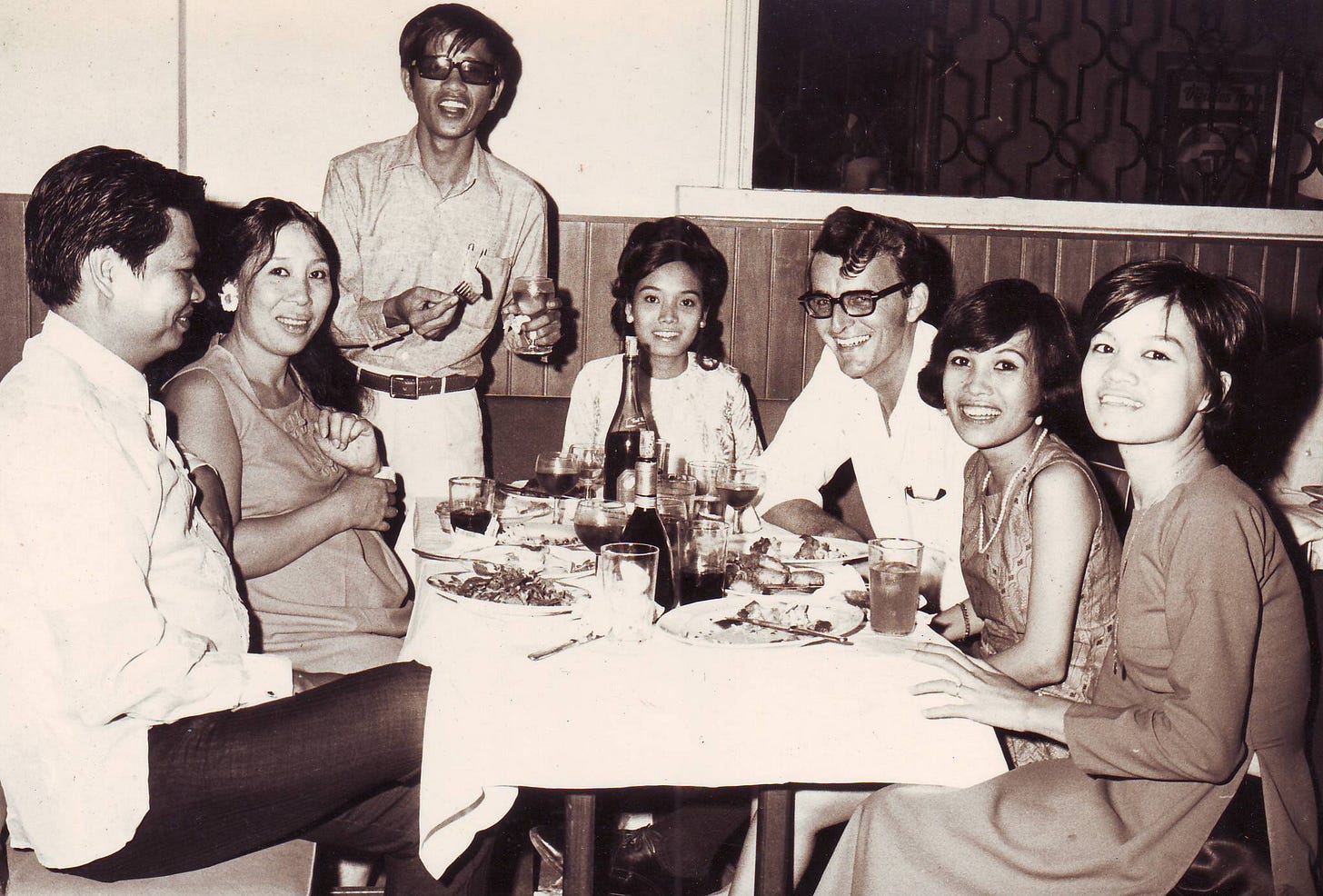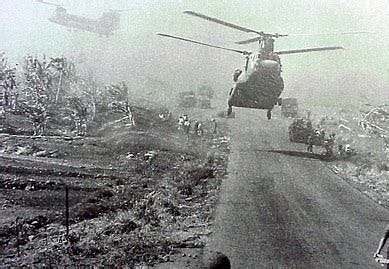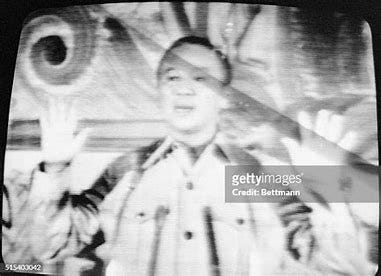Vietnam's 50th - After Phnom Penh falls, a mood of despair. President Thieu resigns.
GRUMPY OLD VIETNAM HAND.
Meanwhile, to keep up chronologically with events of exactly 50 years ago, I mentioned the Fall of Phnom Penh in my last post from The Bite of the Lotus: an intimate memoir of the Vietnam War and which dragged on eerily for days before the Khmer Rouge arrived in the Cambodian capital. And then a mood of despair came over Saigon as a secret airlift of those fearing most of a Communist victory began, including AP’s own Vietnamese staff. South Vietnam’s lines at Xuan Loc east of Saigon collapsed and President Thieu resigned accusing the US of betrayal.
And excerpts from my memoir, which writes in the way I was feeling at the time, now continue - and in the retrospect of today do pardon my utter naïveté about a last-minute political solution involving South Vietnam’s Third Force. But believe me, I was hardly alone among many Vietnamese. Sadly, we were all wishful thinkers.
So Phnom Penh had fallen; would Saigon be next? Personally, I wasn’t that worried. Surely the Viet Cong, or more politely the PRG, wouldn’t be that mean. Or would they line people up for public execution like the Fidelistas did in Cuba back in 1959? After all, they too had promised ‘goodwill and reconciliation’. All we needed now was to get rid of Thieu. Surely they’d talk to those like the Third Force, end the war and let everyone get back to normal? I had no plans to leave.
Former South Vietnamese Foreign Minister, now President of the Senate, gave me this exclusive interview reminding the world of now-resigned President Nixon’s promise to “react immediately and vigorously” to a large scale North Vietnamese offensive to get South Vietnam to agree with the 1973 Paris Peace Agreement. His replacement President Gerald Ford and Democrat-controlled US Congress did nothing. Lam later settled in Canberra, Australia’s capital.
Many others felt differently. Behind the façade of that unseemly Operation Babylift, a secret evacuation was taking place, although it was kept quiet because Ambassador Martin didn’t want to start a public panic. USAF planes bringing in urgent military supplies were departing full of escapees.
My AP story “Mood of Despair” moved on the A-wire in the US on 18 April 1975.
Anyone who worked with the Americans and feared persecution in the event of a Communist takeover could get on the list, make their way out to a warehouse near DAO and onto a military plane out to Clark Air Base in the Philippines, and then on to the US. Knowing an American sure helped; rumours abounded that bar girls and prostitutes were among the first to leave.
Suddenly, Vietnamese I hadn’t seen for years – including some from my USAID days down in Go Cong – were on my doorstep begging for help. I turned them down. I didn’t know anyone at the US embassy; I’d cut those links years ago. Besides, wasn’t peace about to come? ‘Why do you want to leave when the war is finally ending?’ I asked. ‘The VC have promised everything will be okay.’
And now even our Vietnamese colleagues in the Saigon press corps wanted to leave. Unknown to me, a small committee headed by CBS bureau chief Brian Ellis was lobbying the US embassy on their behalf; after the first group successfully left on 18 April, Bureau Chief George Esper told our AP staff that anyone who wanted to leave could do so, along with their families. The first with their hands up were the northern staffers who had fled south in 1954, at the end of the French War and the partition of Vietnam.
I asked Miss Tu, the northerner I’d informed about her husband’s death six years before, what she planned to do. Without any hesitation, she was leaving, along with her entire family and her brother-in-law Mr Bao, our office fixer and visa man. Knowing how anti-communist they were, I seethed in anger.
‘Is this how you fight?’ I demanded. ‘If you really believe in what you say you believe, you can just pick this up –’ and I grabbed the office’s whisk broom and waved it in front of her face – ‘and stop the damned Communists! But, no, you just run away.’
In earlier years before the bug-out, Kim-Dung and me with Miss Tu (R), Cuc Esper, Dang Van Phuoc and Trinh & wife. Nick Ut too. They were all rushing for the exit in April 1975.
Miss Tu stared back at me, her eyes wide. The next day she was gone, along with Bao. And almost every time I came back into the office, someone else had quietly left. DVP, Nick Ut, Trinh, Luu Xay and others. Who was sticking around to cover the story?
The Battle of Xuan Loc raged for a couple of weeks, and fell to the NVA on 21 April. The last obstacle on Route 1 to Saigon was now Bien Hoa, only 35 kilometres to the north-east, III Corps Headquarters and a major airbase, whose VNAF planes were quickly shifted to Tan Son Nhut.
